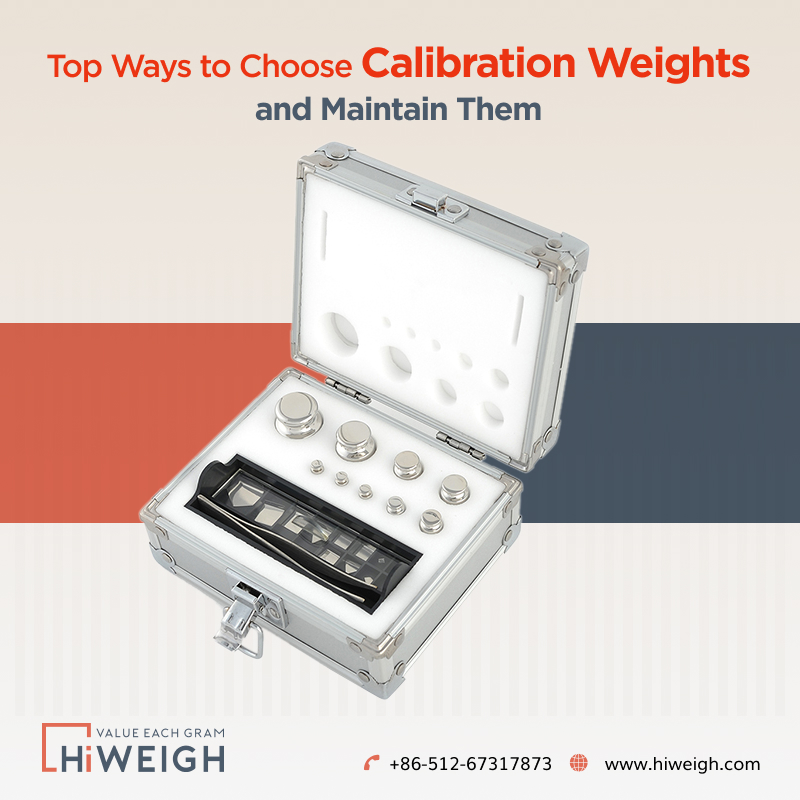Buying a calibration weight is crucial when you run a business that involves regularly weighing items. In such scenarios, you cannot take the risk of sending items with inaccurate measurements. That is why having the right and reliable calibration weights is essential to making sure that your weighing scale is working correctly.



In order to provide precise and trustworthy results, selecting the appropriate calibration weights for your weighing scale is a crucial step. You may use China calibration weights to test the precision of your weighing scale and make any required adjustments. Find out the different factors to consider when choosing calibration weights for your weighing scale.
Identifying the Maximum Capacity of Your Weighing Scale
The heaviest weight that your scale can reliably measure is its maximum capacity. Check your weighing scale’s maximum capacity before selecting calibration weights. Your calibration weights shouldn’t weigh more than your weighing scale’s maximum capacity.
The Accuracy Class of Your Weighing Scale
The accuracy class of your weighing scale is a gauge of its precision. Class E through Class A are all included, with Class A being the most precise. The degree of precision necessary for your calibration weights depends on the accuracy class of your weighing scale. It is advised to use calibration weights with a similar accuracy level if your weighing scale has a high precision class.
Selecting the Appropriate Weight Increments
Weight increments for calibration weights range from milligrams to kilogrammes. For accurate and exact measurements, selecting the right weight increment is crucial. For instance, it is advised to use calibration weights with a weight increase of 1 gram or less if your weighing scale measures in grams.
Material of Your Calibration Weights
Cast iron, brass, and stainless steel are just a few of the materials that are used to make calibration weights. Your calibration weights’ stability and longevity may be impacted by their substance. Due to its longevity and corrosion resistance, stainless steel is a preferred material.
Number of Calibration Weights Needed
The maximum load capacity and accuracy level of your weighing scale will determine how many calibration weights are necessary. It is advised to select a set of calibration weights that span your weighing scale’s whole range. For instance, it is advised to use calibration weights that span the weight range of 1 gramme to 500 grammes if your weighing scale has a maximum capacity of 500 grammes.
Check the Calibration Certificate
Verify the calibration weights’ calibration certificate by looking at it. The accuracy class, weight increments, and traceability of the calibration weights should all be included on the certificate. Choose calibration weights that have a current calibration certificate from a respected calibration laboratory, since this is advised.
It’s essential to select the proper calibration weights for your weighing scale in order to guarantee precise results. When selecting calibration weights for your weighing scale, take into account the maximum capacity, accuracy class, weight increments, material, and required quantity of calibration weights. To maintain accuracy and traceability, always look at the calibration certificate for your calibration weights.
Now that you know how to choose your calibration scale, it’s important to learn how to preserve it so that you can be efficient in calibrating your weighing scale for many years.
Top Best Practises for Preserving Calibration Weights
Tools for assuring accuracy and precision in weighing applications include calibration weights. However, handling, incorrect storage, and exposure to external variables can all reduce their efficacy over time. The best methods for maintaining calibration weights to ensure their accuracy and lifespan are given below.
Storage
Storage of calibration weights should take place in a sterile, dry environment free from pollutants, including moisture and dust. The weights can be kept safe from the elements in a clean room’s dedicated drawer or storage cabinet.
Handling
Calibration weights should be handled carefully. Keep them from being dropped or bumped against other things. To avoid any skin contact, use tweezers or gloves. Skin oils can transfer to the weights and influence their accuracy.
Avoid Extreme Temperature
Extreme temperatures can affect the accuracy of calibration weights. Avoid exposing them to high temperatures, as this can cause expansion or contraction, leading to inaccurate readings.
Cleaning
Cleaning calibration weights on a regular basis can help keep them free of any pollutants that may have collected. To carefully clean them, use a soft cloth or a brush; do not use water or any other substances that might tamper with the weights’ accuracy.
Conclusion
Buying China calibration weights is not that hard when you know the things you need to ensure the correct measurement of your weighing scale. However, if you are facing any problems, follow the guide given above to make the right decision. Also, make sure to follow the best practises discussed in this post so that the calibration weights last a long time.
